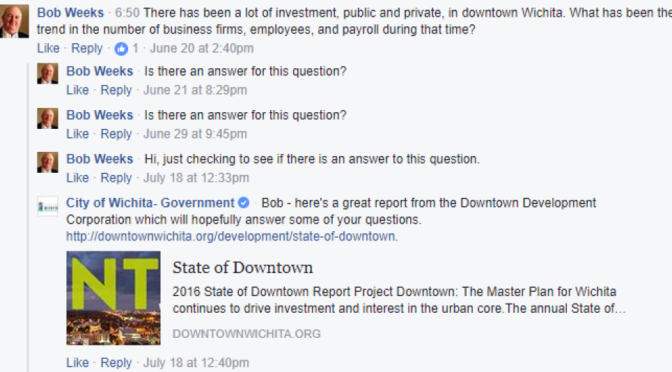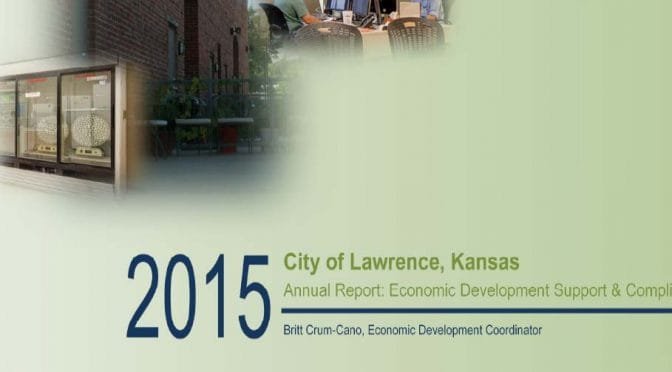Tag: Robert Layton
-

Century II Roof Needs Repair
Wichita has delayed maintaining Century II’s roof, and it needs repair.
-

Naftzger Park on the web: Do we care?
A badly outdated portion of Wichita’s website makes me wonder: Does anyone care?
-

In Wichita, revision of water history
In 2014 Wichita voters rejected a sales tax which would have provided $250 million to spend on a water project. What were the city’s concerns?
-

On big contracts, Wichita has had problems
As Wichita prepares to award a large construction contract, let’s hope the city acts in an ethical manner this time.
-

Wichita being sued, alleging improper handling of bond repayment savings
A lawsuit claims that when the City of Wichita refinanced its special assessment bonds, it should have passed on the savings to the affected taxpayers, and it did not do that.
-

Lawrence has it. Wichita doesn’t.
Despite promises, Wichita fails to inform citizens on important activities of its government.
-

Wichita to look outside for management of engagement
Wichita decides to have someone else conduct public engagement.
-

A Wichita social media town hall
A City of Wichita town hall meeting ends in less than nine minutes, with a question pending and unanswered.
-

Wichita WaterWalk contract not followed, again
Wichita city hall failed to uphold the terms of a development agreement from five years ago, not monitoring contracts that protect the public interest.
-

Wichita check register
A records request to the City of Wichita results in data as well as insight into the city’s attitude towards empowering citizens with data.
-

Year in Review: 2016
Here are highlights from Voice for Liberty for 2016. Was it a good year for the principles of individual liberty, limited government, economic freedom, and free markets in Wichita and Kansas?
-

Wichita doesn’t have this
A small Kansas city provides an example of what Wichita should do.